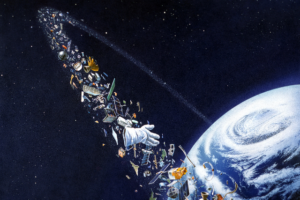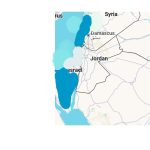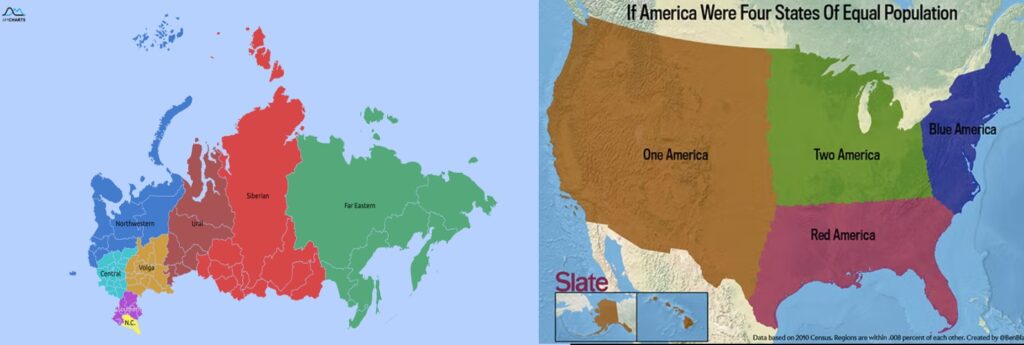Looked at from the heat of combat, war can seem disorganized and chaotic. But overarching the conflict is typically some kind of thoughtful, well-ordered, even scientific strategy that is influencing when, where, how, and why dueling forces have met.
My guest today will introduce us to a few of the military philosophers and tacticians who made the most significant contributions to the art of strategy over the last couple millenia. His name is Andrew Wilson, and he’s a professor at the Naval War College, as well as the lecturer of the Great Courses course, Masters of War: History’s Greatest Strategic Thinkers. We begin our conversation with a brief overview of what martial strategy is, why civilians should study it, and how the contrast between generals Eisenhower and Patton delineate the difference between strategy and operations. We then survey several of history’s most influential war strategists, and the contexts in which their theories and doctrines were born. This tour includes a discussion of how Sun Tzu used The Art of War to argue that a new type of war in a new type of society required a new type of general who could process conflicts like a supercomputer, and a dive into how Carl von Clausewitz emphasized the importance of understanding how complexity, irrational passions, and creative genius underlay contemporary warfare. We end our conversation with how military strategy has or hasn’t changed in the 21st century.
Show Highlights
- Why is it useful for civilians to have an understanding of military strategy?
- What is strategy? How is it different from operations?
- Thucydides, the Peloponnesian War, and what that essential text can teach us today
- The lasting value of The Art of War
- Who was Carl von Clausewitz and why is he still important?
- What’s the state of strategy here in the 21st century
Amateur Hour:
Warlike Scenarios Based on the current geopolitical situation
- Vladimir Putin taking the role of Tsar or declaring himself a Dictator. Russian Occupation of Ukraine.
- Ukrainian Rebels using anti-satellite weapons or North Korea using anti-satellite weapons. Kessler syndrome.

- The death of Elizabeth II led to the sudden change of political stance of the EU and UK [BREXIT FAIL]. Or Forced Replacement of The Queen by her Son Charles, Prince of Wales.
- Kim jong-un missile attack on South Korea, Japan, or U.S.A.
- Chinese Occupation of East Asian Regions, Mongolia or Kashmir.
- Chinese Occupation of Australia or Oceania Islands.
- Iran’s Ali Khamenei Retaliation for its general Qasem Soleimani.
- Israel, Palestine, and Iran war.

- Crude Control – Saudi Arabia (Ottoman Empire) and Russia(Prussia) formed a pact to revival of Ottoman Empire creating a new Saudi Arabia.
- Chinese Occupation of North-East India or Conflict between Burma and Bangladeshi Rohingya.
- Alien attack/ invasion from Barnard’s Star, Wolf 359, Lalande 21185.
- Paranoia is caused due to the recurrent COVID19 disease and lack of cure or occurrence of another kind of virus variant. AIDS + COVID19.
Results of WW3 if any
- Russia will break into 2-3 countries with full Western monopoly and World Wide Web and patents only limited to Western licensors. No Small or Medium scale Businesses.
- America will break into 1-2 countries with full communist authoritarian rule. All forms of online communication will be reduced. custom local jobs with separate highly monitored state-owned websites will be job creators.
- Both Russia and America will break into 1-2 countries, With Europe, China, and India creating a 3-body problem. New investments would be directed toward Australia, Brazil, Canada, and Africa.

pay off matrix
russia oil/ gas price increase decrease
america Saudi price deal increase decrease
us security for Saudi / UAE
Resources/People/Articles Mentioned in Podcast
- On Grand Strategy
- The Art of Strategy
- The Tao of Boyd: How to Master the OODA Loop
- 43 Books About War Every Man Should Read
- Essential Lessons From Great Wartime Leaders
- History of the Peloponnesian War
- How Eisenhower Led
- The Friendship, Rivalry, and Leadership of WWII’s Greatest Generals
- The Spartan Way
- The Art of War
- Lessons From The Art of War
- The Fighter Pilot Who Changed the Art of War
- On War

